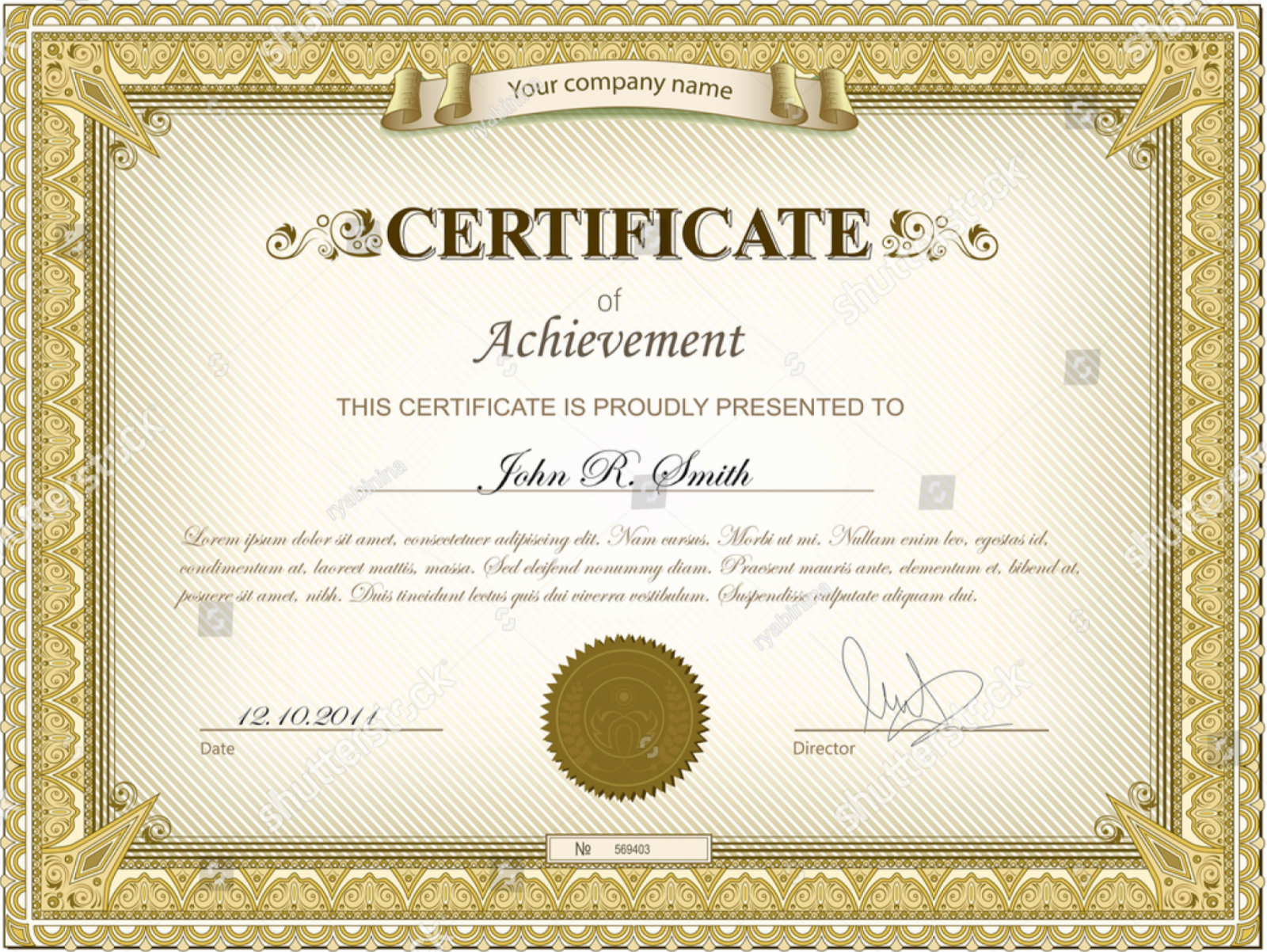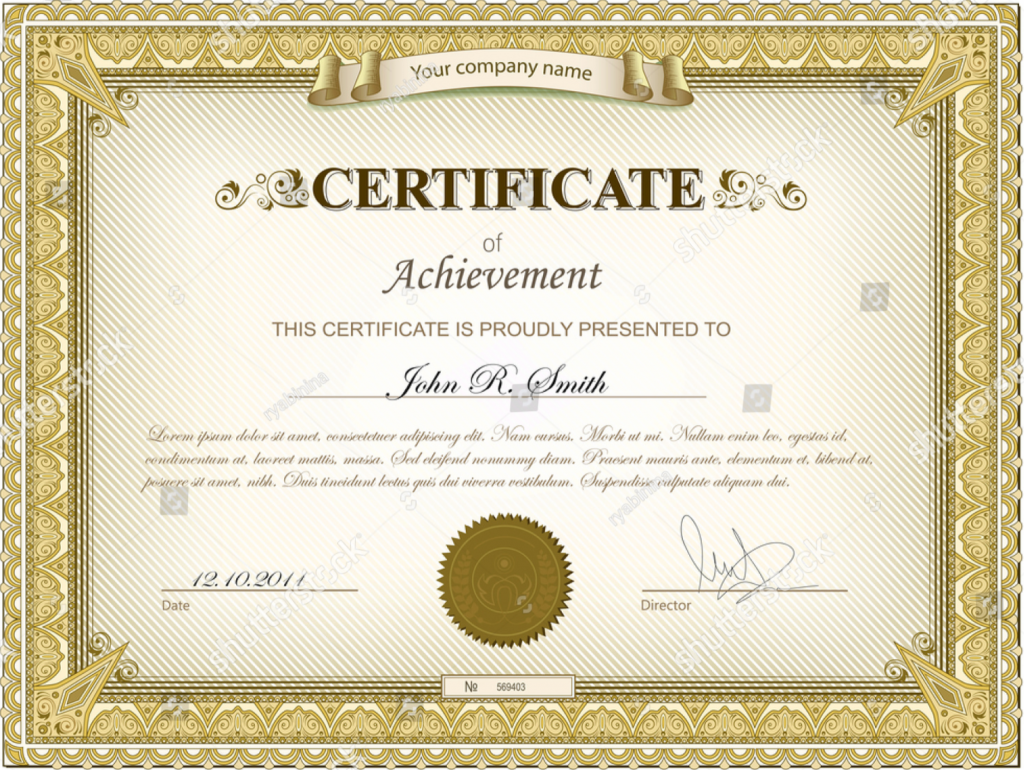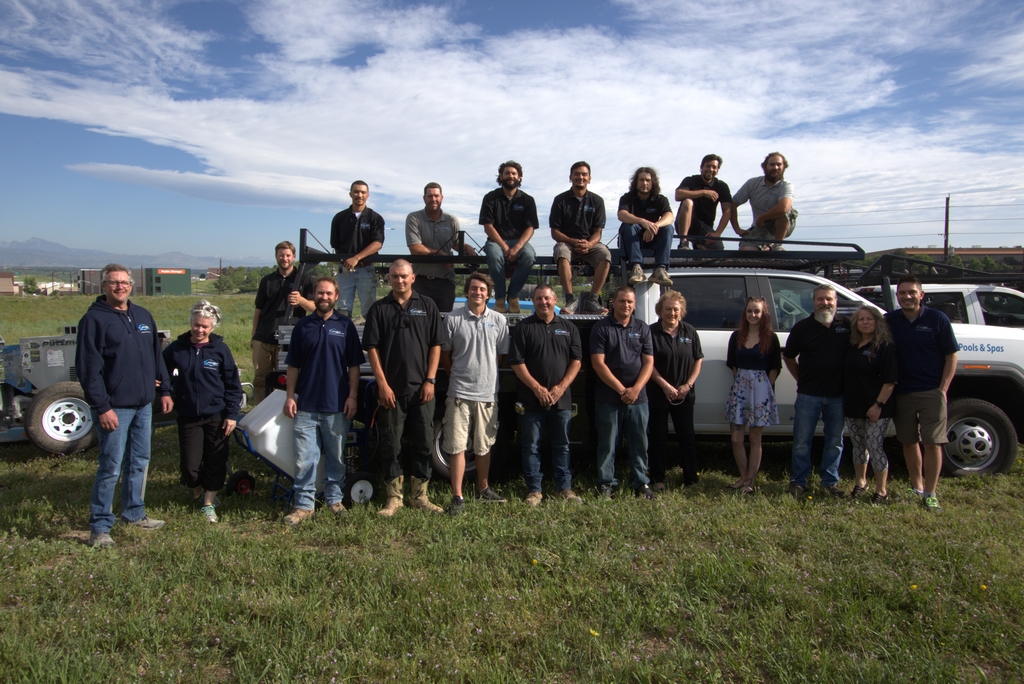Certifying Growth


There’s a big difference between paying lip-service to the importance of education and actively embracing the learning process. For Joe Dempsey, Jr., pursuing continuing education certification is a cornerstone of success. It’s a professional obligation, he says, and ultimately an opportunity to unlock your full potential.
By Joe Dempsey, Jr.
“If you always do what you’ve always done, you’ll always be where you’ve always been.” – T.D. Jakes
Every company in the watershaping industry has a choice. You can either invest in educating your employees, or you can rely entirely on on-the-job experience and your own knowledge as the primary training options.
Growing up in this business, I’m proud of the fact that our company, Aquality Construction in Boulder, CO, has always chosen the former. We stand fast by the idea that education and certification encompass the most effective path to sustained success, and employee satisfaction.
From the 60,000-foot view, we build pools and have always wanted to do so in the best way possible for our clients. It’s really that simple, and as a result we’ve found that developing and maintaining an educated work force is part of the cost of doing business.
Unfortunately, it’s painfully apparent that many others in our industry do not share that perspective. We see that evidence all too often in failed projects, lawsuits and unhappy customers.
NURTURING PROFESSIONALISM
For our company, we’re focused on growth and sustaining a high standard of performance. We’re not really concerned with the competition so much as we are with keeping our own shop in order by staying current with national standards, avoiding mistakes, and more than anything, doing the best job we can to serve our clients’ interests.
We reach that high ground by hiring capable people who can be trained, not necessarily those with directly applicable experience. We’ve found that when hiring people from within the industry, we often wind up having to untrain their bad habits and erroneous notions about what is and isn’t the right way to do things.
There’s also the close-up, microscopic view, where we see that education and certification enabling and empowering individual employees. That’s crucial for today’s millennials who are seeking career paths and opportunities. If you give them an opportunity for growth, they appreciate that more than a lot of other types of benefits.
We currently have 14 employees with certifications for design, shotcrete nozzleman, concrete pump operators, plastering, general construction, water chemistry, service, new plaster startups, watershape operators, and other designations. We also have five employees training for their first certification right now.
It’s not mandatory as a condition of employment, but our employees are almost always eager to take advantage of opportunities to learn and become certified in these different areas and technical disciplines.
BIG BENEFITS
Why is certification and education in general so useful? When you seek instruction from experienced professionals, you’re able learn from other people’s mistakes, that’s probably the biggest thing. You not only learn what it takes to meet an accepted standard of care, but how to avoid the costly missteps.
Education and certification play crucial roles in the pool building construction trade for several well-established reasons:
- Education provides pool builders with fundamental knowledge of construction principles, engineering concepts, and design techniques essential for building safe and durable pools.
- Pool construction involves adherence to building codes, safety standards, and environmental regulations. Education and certification ensure that as builders we are aware of these regulations and equipped to comply with them, reducing the risk of legal issues, fines, or project delays due to non-compliance.
- Certification is often associated with quality workmanship and professionalism. Some clients are more likely to trust and hire certified professionals, knowing that they have undergone training and meet industry standards. This enhances the reputation of both individual builders and the pool construction industry as a whole.
- Pool construction involves various risks, including structural failures, electrical hazards, and water-related accidents, such as drowning, suction entrapment and diving accidents. Education and certification programs include safety training, risk assessment, and mitigation strategies, helping builders identify and address potential hazards to prevent accidents and injuries on job sites.
- Well-educated and certified contractors are better equipped to meet client expectations and deliver high-quality results. That might take the form of accurate project estimates, informed design recommendations, and effective client communication throughout the design and construction process, leading to greater customer satisfaction, and positive referrals.
- Continuing education and advanced certification opportunities enable pool builders to stay updated on industry trends, emerging technologies, and best practices. This ongoing professional development enhances career prospects, opens up new opportunities for specialization or advancement, and sharpens our competitive edges.
- Education and certification programs often include training on eco-friendly construction practices, energy-efficient equipment, and water conservation techniques. By promoting sustainable building methods, certified watershapers can minimize the environmental impact of their projects and contribute to conservation efforts, and better comply with environmental rules, standards and regulations.
HORSES TO WATER
To be sure, those benefits are all-encompassing, both from the high-up and close-up perspectives. Just because you show up to a class, however, does not necessarily mean that the information will stick. Based on my own personal experience, I have learned something new every time that I attend a class, without exception. I believe that happens for two basic reasons:
First of all, I always show up with an open mind and encourage our employees to do so, as well. It only makes sense: if you’re going to take the time and devote the resources for education, it behooves the student to show up ready to learn. Otherwise, the whole exercise becomes a massive waste of time and money.

As air-tight as that logic may be, almost every time I’ve attended a class of some type there are people sitting there with their arms crossed, not taking notes and oftentimes, expressing doubt and cynicism every step of the way.
Our industry is so reliant on the “way we’ve always done it” mentality, that the very act of education cuts against the grain for many. That’s especially true when a company’s “Alpha” is the one taking the class. It’s almost as if the instruction is an insult to their ego.
That kind of resistance is counterproductive in a learning environment. Growing what you know requires an open mind. That does not mean you have to accept everything being taught without question, but it does mean being open to the idea that you don’t know everything.
No one, no matter how experienced and successful, has seen it all and experienced everything. Education is the aggregation of knowledge, that often is the result of decades of experience across innumerable different people and companies.
One mistake in the pool industry can easily cost more than a year worth of classes, but each class you can learn from other people’s mistakes to help make sure you don’t repeat them. That’s where some of the highest value can come from!
When you show up with an open mind, you have the opportunity to tap into spectrums of information that far exceed individual experience.
BUILDING RESILIENCE
One of the big advantages of education boils down to the classic saying, “Hope for the best, plan for the worst.”
Fact is, no one has a functioning crystal ball and part of being in business means accepting that the unexpected is inevitable. No one can predict the future. Being educated is the best way to prepare for uncertainty.
We’ve all recently lived through a prime example. No one would have ever predicted the COVID pandemic. In what seemed like the blink of an eye, our entire world was turned upside down. It was completely unprecedented. For our industry, the unexpected was even more dramatic. Because of the shelter-in-place edict, demand for our products exploded.
If there was ever a time when being educated mattered, that was it in bold capital letters. The companies with resources of knowledge and the ability to adapt were well positioned to capitalize on the opportunities. Those that were not so well-prepared did not flourish the way they could have.
Many people in the industry have been around long enough to remember The Great Recession.
Back then we saw business contract as real estate values plummeted. Almost a completely opposite set of circumstances as the pandemic, but again, companies that had invested in education, were far better positioned to adjust to the dire market conditions.
In other words, in both times of abundance and scarcity, good fortune favors those who are prepared. No one knows what will cause the next seismic shift.
THE COMPETITIVE CAVEAT
One of the most common reservations about education revolves around the idea that by training your employees, you’re developing future competitors. It’s a fear-based way of managing employees that places a value on keeping people in static roles.
In our experience, we’ve found that educating employees fosters a sense of loyalty and commitment. Most people are grateful for the opportunities and oftentimes use what they’ve learned as a platform for growth within the organization.
When our employees come back from a class, they are often fired up and eager to put what they’ve learned into motion. Their enthusiasm can impact their co-workers and become contagious. In this way, we’ve found that by educating the individual we’re fueling a positive company culture that impacts everyone.
The other way to look at it is to acknowledge that you’re better off with competent competitors than those who are not. After all, it’s the uneducated operators who do stupid things like radically undercut pricing or worse, build failed projects that damage the reputation for the entire industry.
Developing professionalism among your staff, in fact, has no downside. Yes, it requires time and money, but our experience has been that those investments come back many folds, over and over again.
Through education and certification, we effectively increase the value of our companies, our employees and, indeed, the industry at large.
Joe Dempsey Jr., is chief operating officer for Aquality Construction, a custom watershape design and build firm located in Boulder, CO. Born and raised in the pool industry, Dempsey is a member of the International Watershape Institute, Certified Master Pool Builder & Design Professional, Certified Pool Operator, aCertified Watershape Operator and Registered Shotcrete Nozzleman.










